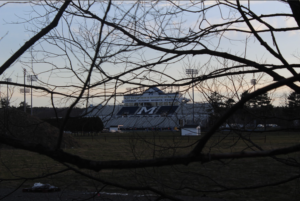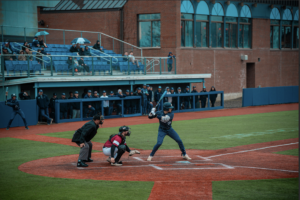After a semester of remote, hybrid, and in-person learning, the University of Maine will be following what many schools across the nation have done and is going completely online through the end of the semester. All students in the University of Maine System will attend fully remote classes for the remainder of the fall semester. This is bound to raise new challenges for both students and professors, as they are now spread out even more so than throughout this tumultuous semester.
While UMaine students have already proven their ability to adapt to an online college experience, as was seen in the 2020 spring semester, there are still concerns that some feel need to be addressed. Third-year international affairs student Clayton Bush is worried about remote learning.
“I study international affairs with a concentration in international security. Most of my classes consist of writing papers and discussions revolving around current issues internationally. Classes on Zoom are awful compared to learning [in-person]. It is much easier to stop paying attention, fall asleep or skip class with them being online,” Bush said. “With in-person classes, you can walk from class to class with the fresh air waking you up as well as allowing you to participate normally in class, which is something that is not available in all Zoom classes. Being locked in my room all day stuck in Zoom is not a productive way of learning for students. I am extremely surprised that schools are even charging the same tuition, sometimes more, for online classes. It is absurd because the value of learning has dropped.”
Some fields of study have definitely been hit harder than others by the COVID-19 pandemic. Subjects that require hands-on experience have had to adapt, and will continue to do so as the university goes fully remote. Nursing students, who rely on clinicals and labs will have to learn how to get by without these experiences in the upcoming weeks. Third-year nursing student Alexandra Peary had a lot to say when asked about how her courses and syllabi will be different, how she plans to manage the transition to learn from home, and if she thinks that her classes that are moving online will be hard to get used to.
“My courses will obviously be a lot less hands-on, meaning that the focus will be more on nursing content and less on practical skills. I plan to manage the transition by designating specific time blocks throughout the week to each course I’m taking. I’ve found that spreading out my course load throughout the week rather than doing it all at once has helped me adjust to online classes,” Peary shared. “The majority of our classes have actually been online the entire semester, but our labs did move online at the end of September as planned. The adjustment was difficult at first because our labs went from in-person immersion to virtual labs using clinical simulations. It was not so much getting used to navigating the online labs, but more so the adjustment of interacting with virtual rather than live patients.”
UMaine students are trying to be as prepared for the transition as they can be, and so are the professors. After a tremendous amount of planning, faculty and staff are ready to tackle this challenge. Kevin Roberge, a mathematics professor shared that he is prepared for online learning.
“My syllabi and courses had planned for this transition. I have tried to keep assignments predictable and manageable during the semester and will continue to do this during the last few weeks of the semester.”
Some professors have been holding online classes all semester and have been very vocal about whether they believe that they are challenging for students. English professor Paul Eaton has been holding his classes remote all semester.
“I think having a Zoom class all semester is in many ways more challenging for students than having an in-person class that has a scheduled transition to a remote class. This is because students can at least have the experience for part of the semester of meeting in person, getting to know each other, etc. I also find that attendance is better for in-person classes, so in that situation more students have the benefit of experiencing the class,” Eaton said.
After the trials and tribulations of a semester amid COVID-19, students and professors are burnt out and ready for a break. While Thanksgiving provided a breather for the UMaine community, only time will tell how the transition to remote learning will go.






